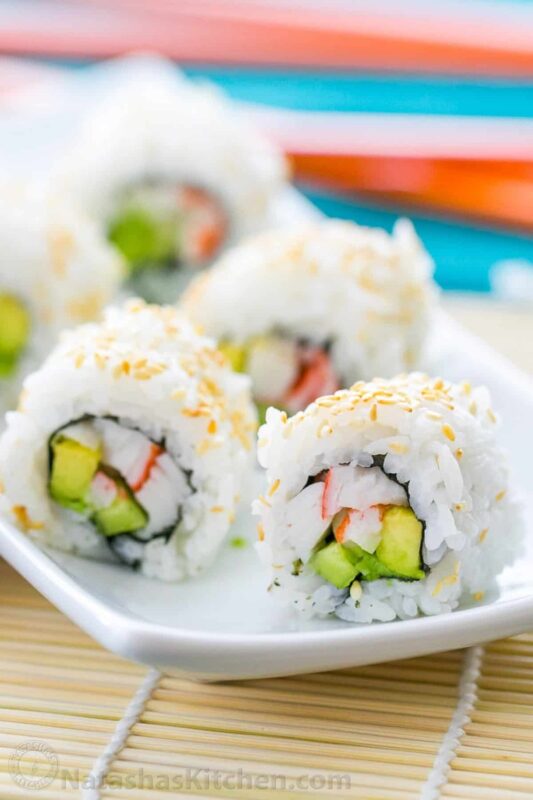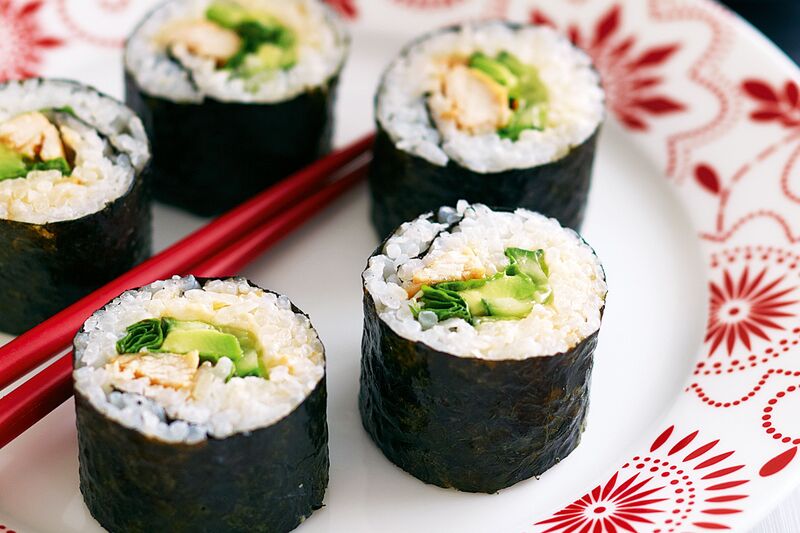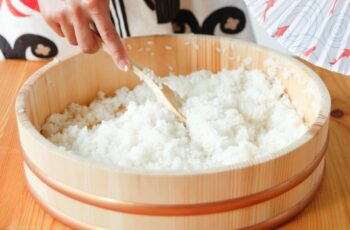Table of contents
I. Introduction
Sushi is a popular Japanese dish that has gained worldwide recognition for its unique flavors and presentation. At the heart of any sushi dish is the sushi rice, which is a special type of short-grain rice that is prepared with a mixture of vinegar, sugar, and salt. In addition to these key ingredients, there are other components that are used in the preparation of sushi rice, such as kombu and cooking wine.
While sushi rice ingredients are essential for creating delicious and authentic sushi dishes, it is important to understand the proper ways to store and preserve them. Proper preservation not only helps maintain the freshness of the ingredients but also ensures their safety for consumption.
II. Sushi Rice

How long do sushi rice ingredients last and how should they be preserved-1
Sushi rice typically has a shelf life of about six months to a year, depending on the brand and packaging. To ensure the freshness and quality of the sushi rice, it is recommended to store it in an airtight container in a cool, dry place. Exposure to moisture and heat can cause the rice to spoil, so it is important to keep it away from direct sunlight and humidity.
To extend the shelf life of sushi rice, it is best to buy it in smaller quantities that can be consumed within a reasonable time frame. Additionally, keeping the rice in the refrigerator or freezer can help preserve its freshness for longer periods.
III. Rice Vinegar
Rice vinegar is an essential ingredient in the preparation of sushi rice, and it has a relatively long shelf life. Unopened bottles of rice vinegar can be stored at room temperature in a cool, dry place for up to two years. Once opened, the vinegar should be refrigerated and consumed within six months for optimal freshness.
To extend the shelf life of rice vinegar, it is important to keep it away from heat and sunlight. Storing it in an airtight container in the refrigerator can help preserve its freshness.
IV. Sugar and Salt
Sugar and salt are also key ingredients in the preparation of sushi rice, and they have a virtually indefinite shelf life if stored properly. Both should be kept in a cool, dry place away from moisture and humidity. It is important to keep them in an airtight container to prevent them from absorbing moisture or odors from the surrounding environment.
To extend the shelf life of sugar and salt, it is best to buy them in smaller quantities that can be used within a reasonable time frame. Additionally, storing them in the refrigerator or freezer can help preserve their freshness for longer periods.
V. Kombu and Cooking Wine

How long do sushi rice ingredients last and how should they be preserved
Kombu is a type of seaweed that is often used in the preparation of dashi, a broth that is commonly used in Japanese cooking. Kombu has a relatively long shelf life of up to two years if stored properly in a cool, dry place away from direct sunlight and humidity. Similarly, cooking wine also has a long shelf life of up to a year, provided it is stored properly.
To store kombu and cooking wine, it is recommended to keep them in airtight containers to prevent them from absorbing moisture or odors from the surrounding environment. Additionally, it is best to store them in a cool, dry place away from heat and sunlight. To extend their shelf life, it is recommended to buy them in smaller quantities that can be used within a reasonable time frame.
VI. Storage Techniques
Proper storage techniques are essential for maintaining the freshness and safety of sushi rice ingredients. One of the most important factors is proper temperature control. Sushi rice ingredients should be stored at temperatures below 40°F to prevent the growth of harmful bacteria. This means that storing them in the refrigerator or freezer is the best option.
When storing sushi rice ingredients, it is important to use airtight containers to prevent moisture and odors from getting in. This will help maintain the freshness of the ingredients and prevent contamination. It is also important to label the containers with the date of storage to ensure that they are used within a reasonable time frame.
Freezing sushi rice ingredients is also an effective way to extend their shelf life. However, it is important to note that freezing can affect the texture of some ingredients, such as sushi rice, so it is recommended to consume them within a few months of freezing.
VII. Expiration Dates and Food Safety
Understanding expiration dates and best before dates is important for ensuring the safety of sushi rice ingredients. Expiration dates indicate the date after which the ingredients are no longer safe for consumption, while best before dates indicate the date after which the quality of the ingredients may begin to deteriorate.
To determine if sushi rice ingredients are still safe to consume, it is recommended to check for signs of spoilage, such as a foul odor or discoloration. If there are any doubts about the safety of the ingredients, it is best to err on the side of caution and dispose of them.
Proper disposal techniques for expired or spoiled sushi rice ingredients include placing them in a sealed plastic bag and disposing of them in the trash. It is not recommended to dispose of them in the sink or toilet, as this can cause clogs or other plumbing issues.
VIII. Conclusion
In conclusion, proper preservation is crucial for maintaining the freshness and safety of sushi rice ingredients. By understanding the shelf life, best storage practices, and tips for extending the shelf life of sushi rice, rice vinegar, sugar, salt, kombu, and cooking wine, you can ensure that your ingredients remain fresh and safe to consume.
Proper storage techniques, such as temperature control, airtight containers, and labeling, are also important for maintaining the quality of sushi rice ingredients. Additionally, understanding expiration dates and best before dates is crucial for ensuring the safety of sushi rice ingredients.
By following these guidelines, you can ensure that your sushi dishes are always delicious and safe to consume. Remember to always check for signs of spoilage before using any ingredients and to dispose of expired or spoiled ingredients properly.
In summary, proper preservation techniques are essential for maintaining the freshness and safety of sushi rice ingredients, and by following these guidelines, you can enjoy delicious and healthy sushi dishes at home.








